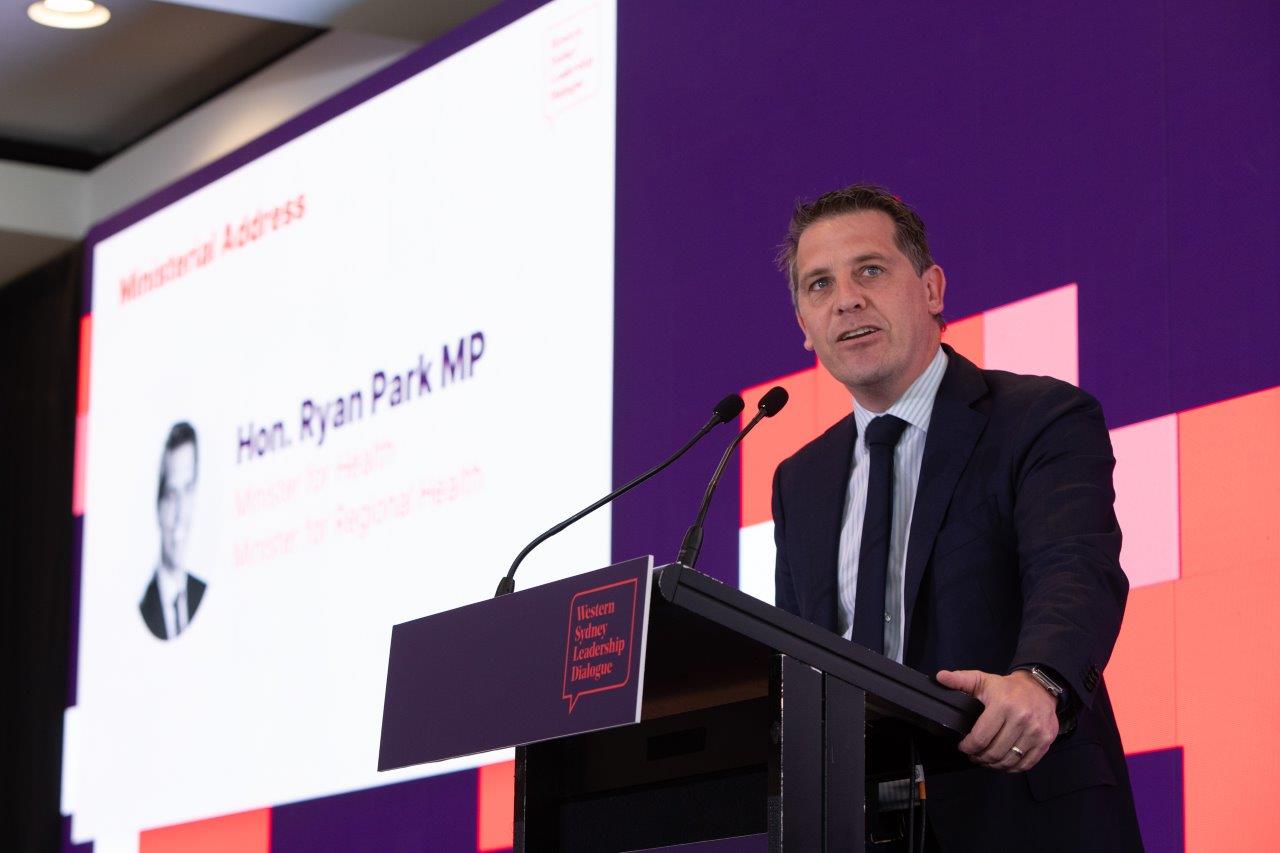
A Western Sydney health conference today heard calls for the NSW Government to ban junk food advertising on all public transport to address the region’s worsening obesity and diabetes crisis.
The advertising ban is one of several proposals discussed at today’s Western Sydney Leadership Dialogue’s GWS Future Health Forum.
Further steps included expanding walking sports programs, a national step challenge, new Western Sydney health precinct cooperation and multidisciplinary education to help reduce chronic health conditions in the region.
Dialogue CEO, Adam Leto, said research, data and overseas success stories showed there were numerous low-cost initiatives that could dramatically improve health outcomes for residents across Greater Western Sydney.
“We can improve the health and well-being of tens of thousands of Western Sydney residents by taking these small steps that will have such a big impact on local communities,” Mr Leto said.
“There are many communities across Greater Western Sydney that have a higher proportion of overweight residents, while the region is a recognised diabetes hotspot. This is an opportunity for local health professionals, all layers of government and local community leaders to work together and tackle these critical health issues with internationally successful programs.”
The NSW Health Minister Ryan Park headlined the Dialogue’s GWS Health Forum, which brought together over 250 leading academics, researchers, local business leaders, sports professionals and key community stakeholders, including chief executives and chairs of the local health districts.
Delivered in collaboration with Greater Western Sydney’s three Local Health Districts, the forum examined a range of critical health issues impacting Western Sydney, explore opportunities for world-class innovation and discuss heat as a health threat for local communities.
Junk food advertising ban
The NSW Government should ban the advertising of discretionary foods on publicly owned transport assets, including on trains, at stations, on buses and at bus stops.
Restricting fast food advertising to address obesity and improve health outcomes proved a success for London in 2019 when Mayor Sadiq Khan introduced an ad ban of food and drink high in fat, sugar and salt (HFSS) from London’s tube and bus network, as part of measures to address childhood obesity.
Evaluations of the project supported policies that restrict HFSS advertising as a tool to reduce purchases of HFSS products. Studies showed a reduction of HFSS purchasing by approximately 1000 calories per week, 81% reduction in sugar purchases per week, 95,000 fewer cases of obesity and an estimated saving of 200M pounds ($385M) to the health system.
More Walking Sports
Building on the growing popularity of Walking Football that is now played in Western and Southwest Sydney, the Dialogue proposes expanding the program to netball and rugby and encourage older adults to increase their physical activity levels.
These sports provide a low-cost intervention to improve physical health and activity levels, mitigate the development or worsening of obesity and diabetes and improve social and mental wellbeing in participants. This is an opportunity to target groups often excluded from sports participation.
Walking Football was first launched in Derbyshire, England, in 2011 and has continued to grow around the world. A Walking Football Evaluation study carried out by London Sport found “walking football does have a positive impact on participants’ health, notably mental and social wellbeing. Players improve their ability to deal with problems, feel useful and think clearly and optimistically.”
A Big Step Challenge
A national or state ‘Step Challenge’ is a cost-effective initiative to encourage increased physical activity and improve mental well-being across all age groups.
Step Challenges have been run successfully in a number of countries, including Singapore, which has run the program six times with measured success.
Walking for an average of 30 minutes or more a day can lower the risk of heart disease, stroke by 35% percent and Type 2 diabetes by 40%, according to the Heart Foundation.
Multidisciplinary Education in the West
A new type of interdisciplinary, nimble and responsive education provider has been emerging both here and overseas. Education institutions and innovation precincts need to be supported to grow and innovate, so that they can scale up multidisciplinary curricula, create new transdisciplinary clusters and further integrate cross-disciplinary approaches to education. The Liverpool Innovation Precinct is a local example of innovative cross-collaboration.
Contact
Follow
Explore
We acknowledge and honour Aboriginal People who have cared for Country in Greater Western Sydney for at least 60,000 years and acknowledge the Traditional Owners of the land on which we gather today.
The Western Sydney Leadership Dialogue thanks these Traditional Owners and we pay our respects to their Ancestors and Elders – past, present and emerging.
We also acknowledge the vital role played by our Local Aboriginal Land Councils, the modern custodians for all First Nations people who currently live in our region, home to one of the largest urban Aboriginal populations in Australia.